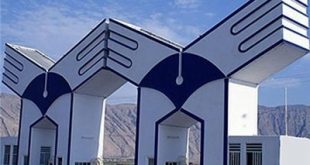رشته های نانومواد در انرژی (در دانشگاه تورنتو کانادا)
رشته تحصیلی: مواد/متالوژی|انرژی | موقعیت: کانادا | تاریخ انقضا: ۱۳ اردیبهشت ۱۳۹۶
موسسه بورس (فاند) علم اتریش (Austrian Science Fund (FWF)) سازمان بورس مرکزی اتریش برای تحقیقات پایه می باشد. هدف این موسسه حمایت از توسعه پایدار علم اتریش و تحقیقات پایه در سطح بین المللی است. در این راه، FWF سهم قابل توجهی در توسعه فرهنگ، پیشرفت جامعه مبنی بر دانش، و نیز ایجاد ارزش و اعتبار در اتریش دارد.
Postdoctoral positions at the University of Toronto
Joint experimental and theoretical studies of nanomaterials in energy – including catalysis, light emissionand solar energy
The research group of Prof. Ted Sargent encourages senior doctoral students in Austria to apply for the Schrodinger Fellowship in partnership with, and for a planned post-doctoral fellowship at, the University of Toronto. Please contact ted.sargent(at)utoronto.ca to collaborate on a Schrodinger Fellowship application.
Positions.
Each candidate will lead a research project in the area of new materials and devices for energy. Materials systems of particular interest include quantum dots, perovskites, nanorods, nanostructured metals, metal oxyhydroxides, metal-organic frameworks, and covalent-organic frameworks. Application areas of interest include catalysis, light emission, and solar energy.
Candidates with demonstrated expertise both in experiment (such as materials synthesis, device fabrication and investigation, and photophysical and synchrotron studies) and theory (such as density functional theory and computational materials science more broadly) are encouraged to apply.
The research is aimed at building functional devices that appreciably exceed existing performance records. Advances are typically rooted in deepening understanding at the level of material chemistry and physics.
The principal goal will be first-authored publications in high-impact journals; accompanied with an expectation that the candidate will devote a fraction of time to co-mentoring graduate students in the group and developing new research directions.
Candidates are expected to bring leadership in motivating and contributing to multidisciplinary teams; excellent communication skills and efficient writing, including the capacity to offer thoughtful and clear technical guidance on research projects.
Proven experience and impact in at least one of the following areas is required:
– Electrochemistry
– Catalysis for CO2 capture and conversion
– Surfaces and interfaces of porous and nano- materials
– Synthesis, characterization and functionalization of MOFs/COFs
– Synthesis and characterization of colloidal quantum dots and/or perovskites
– Optical gain and lasing
– Transient photoluminescence and absorption spectroscopies
– Fabrication and testing of PV, LED, and photodetector thin film semiconductor devices
– DFT, semi-empirical and force-field simulations in inorganic and organic and hybrid materials
– Computation of electronic and optical properties, electrochemical activity, many-body effects in large systems (up to 1000 atoms)
– Parallel programming
– Semiconductor device modeling
– Finite element modeling and FDTD
More information on the research program is available at:
http://light.utoronto.ca
http://www.cifar.ca/bio-inspired-solar-energy/
Applications should be sent as soon as possible to Prof. Ted Sargent (ted.sargent(at)utoronto.ca) at the University of Toronto. Please list 3 referees who have confirmed that they are willing to supply letters of reference upon request.
Example publications of interest are listed below:
Catalysis: “Homogeneously dispersed, multimetal oxygen-evolving catalysts,” Science, DOI: 10.1126/science.aaf1525, 2016.
Catalysis (CO2): “Enhanced electrocatalytic CO2 reduction via field-induced reagent concentration,” Nature, doi:10.1038/nature19060, 2016.
Light emission: “Quantum-dot-in-perovskite solids,” Nature, vol. 523, pp. 324-328, 2015.
Solar energy: “Colloidal quantum dot solids for solution-processed solar cells,” Nature Energy, DOI: 10.1038/NENERGY.2016.16, 2016.
Contact(s)
Name:Prof. Ted Sargent
 کنکوری کنکوری تدریس معلم خصوصی در منزل از ابتدایی تا دبیرستان ریاضی فیزیک زیست در تهران
کنکوری کنکوری تدریس معلم خصوصی در منزل از ابتدایی تا دبیرستان ریاضی فیزیک زیست در تهران


